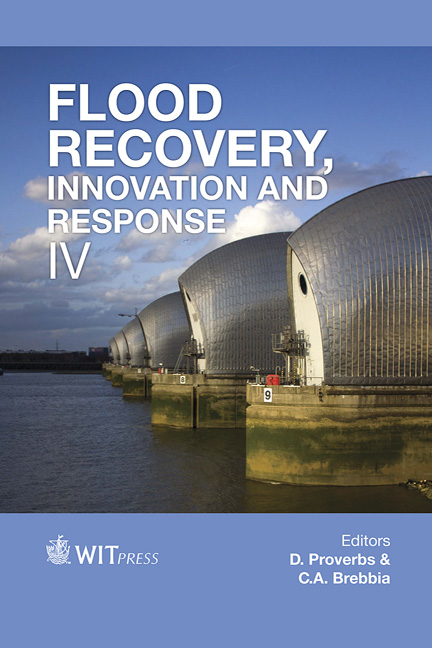Resilient Reinstatement: What Can We Learn From The 2007 Flooding In England?
Price
Free (open access)
Transaction
Volume
184
Pages
12
Page Range
175 - 186
Published
2014
Size
361 kb
Paper DOI
10.2495/FRIAR140151
Copyright
WIT Press
Author(s)
R. Joseph, D. Proverbs & J. Lamond
Abstract
In the face of increased flooding in the UK, it is becoming increasingly important to understand the ways in which flood experience can affect homeowners’ attitude towards taking precautionary measures to protect their homes. This could include investing in flood adaptation measures to reduce likely flood damage and hence exposure to flood risk. This research sought to investigate, the level of awareness, implementation and the costs of resilience measures, from those homeowners who had experienced flood damage to their properties in 2007 summer flooding in England. A questionnaire survey was thus employed to elicit the extent to which flood experience influenced the decision to adopt flood resilient measures during reinstatement works. The findings revealed that some 82% of houses inundated were returned to their pre-incident condition i.e. with no improved resilience to future flooding. It was found that the level of awareness of resilience measures among the respondents was high; however, the level of implementation was quite low. Only 10% of those who indicated that they invested resilience measure actually implemented a full package of the measures. This shows that more needs to be done by flood risk management stakeholders to encourage full uptake of resilience measures. Loss adjusters and surveyors are better placed to advice homeowners of the potential risk reduction measures, which can be implemented during reinstatement period. Further, there is a need for policy development in the form of revising the current Building Regulations for refurbishing or reinstating flood damaged buildings in order to encourage the up-take of resilient reinstatement.
Keywords
flood adaptation, flood damage, flood experience, resilience measures.





